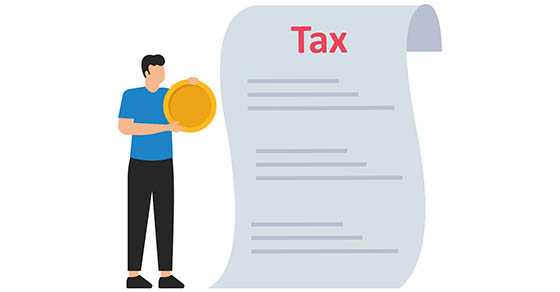Exploring How Taxation is Evolving and What It Means for Your Business
Taxation is a dynamic and ever-changing landscape, constantly influenced by economic, technological, and societal shifts. As we embrace the digital era and navigate the aftermath of global events, businesses must stay attuned to emerging trends in taxation to make informed financial decisions. In this blog, we’ll explore the future of taxation and delve into the trends and predictions that may impact businesses in the coming years.
Digital Taxation:
The rise of e-commerce and the digital economy has challenged traditional tax frameworks. Many countries are now implementing or considering digital service taxes to capture revenue from tech giants and online platforms. As a result, businesses operating across borders may face increased compliance requirements and potential double taxation issues.
Remote Work Taxation:
The COVID-19 pandemic accelerated the shift towards remote work, blurring geographical boundaries for businesses and their employees. Tax authorities are adapting to this new reality, with some jurisdictions exploring the possibility of taxing remote workers based on their work location rather than their employer’s physical presence. Companies must be prepared for potential changes in tax withholding and reporting requirements.
Environmental Taxes:
As environmental concerns take center stage, governments worldwide are considering eco-taxes and carbon pricing mechanisms. Businesses involved in energy-intensive industries may face additional tax burdens as part of efforts to incentivize sustainability and reduce carbon emissions.
Automation and AI in Tax Compliance:
Advancements in technology, such as artificial intelligence and machine learning, are revolutionizing tax compliance processes. Automated tax reporting and filing systems are becoming more prevalent, enabling businesses to streamline their tax operations, reduce errors, and stay up-to-date with complex regulatory changes.
Data Privacy and Tax Reporting:
In an era of heightened data privacy regulations, businesses must balance tax reporting requirements with the protection of sensitive financial information. Tax authorities are expected to adopt more secure and transparent data exchange protocols to ensure compliance without compromising data privacy.
Global Tax Coordination:
The international tax landscape is evolving, with ongoing efforts to address base erosion and profit shifting (BEPS). International tax agreements and initiatives like the OECD’s BEPS 2.0 project aim to establish a unified approach to taxing digital businesses and multinational corporations, reducing tax avoidance opportunities.
Tax Incentives for Sustainable Practices:
Governments are increasingly incentivizing businesses to adopt sustainable practices by offering tax credits. They also offer deductions for eco-friendly investments and green initiatives. Embracing environmentally responsible practices not only benefits the planet but also provides tax advantages for forward-thinking businesses.
The future of taxation promises both challenges and opportunities for businesses. Tax regulations are evolving to adapt to changing economic and environmental landscapes. Companies must stay proactive in understanding and complying with new requirements. Therefore, embracing technology, staying informed about global tax developments, and exploring sustainable practices can position businesses for success in an ever-changing tax landscape. Consider utilizing marketplaces like IfindTaxPro. You can post your project and find the right tax specialist for your unique situation.








